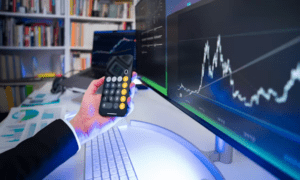Forex is the largest financial market. It has a daily transaction volume of $5 trillion. However, Forex has favorable and unfavorable features you should consider before you start trading. An article by Traders Union experts discusses the main risks and benefits of Forex trading to help beginners make a more informed decision.
What is Forex?
The word “Forex” stands for “foreign exchange”, so Forex is a synonym for the “foreign exchange market”. It includes all operations with currency pairs, securities, precious metals, and investor funds, which are carried out without reference to a specific country or a bank.
The main advantage of the Forex market is that it is an international market where people can earn profit by betting on exchange rate fluctuations between a currency pair. Everyone can trade in this market, regardless of citizenship and location. People who trade at the market are called traders.
In a global sense, a trader has only one restriction – he cannot enter the market on his own, the international laws do not allow this. Only large, officially regulated companies can become Forex participants. These companies are called brokers. Traders enter the interbank market through brokers. Traders open accounts with the brokerage companies, verify their data, make a deposit, and start trading. Nothing could be easier.
Forex Trading Drawbacks (Risks)
TU experts took a closer look at the main drawbacks associated with Forex trading.
- High leverage. Leverage in Forex trading refers to the practice of borrowing money from a brokerage company to control a larger position in the market. While leverage can heighten profits, it can also significantly increase the risk of losses, especially for beginner traders. Using 100:1 leverage, a trader with $100 can control a $10,000 position. However, if the market moves 1% against them, their entire account balance is at risk.
- Difficult Market Analysis. Traders mostly use two primary methods for market analysis: technical and fundamental analysis. Technical analysis includes studying historical price data, charts, and patterns to predict future price movements. Fundamental analysis focuses on understanding the underlying economic factors that change currency values. Both methods require a deep understanding of the market and the ability to interpret complex information to make informed trading decisions.
- Lack of Pricing Transparency. The Forex market is decentralized, which means it has multiple liquidity providers such as banks, financial institutions, and market makers determining currency prices. As a result, different providers may quote different prices for the same currency pair at the same time. This discrepancy can make it difficult for traders to accurately assess the fair market value of a currency pair, leading to potential confusion and wrong trading decisions.
Is Forex trading legit? Can I trade Forex?
Forex trading is a legal and regulated market in most countries. In countries where Forex trading is regulated, it is overseen by financial regulatory institutions that ensure transparency, fairness, and consumer protection. In the United States, the Forex market is regulated by the Commodity Futures Trading Commission (CFTC) and the National Futures Association (NFA). In Cyprus, trading is regulated by Cyprus Securities and Exchange Commission (CySEC). In the United Kingdom, the Financial Conduct Authority (FCA) regulates Forex trading activities.
Summary
To sum up, Forex trading is a good way to earn some money and gain new experience. Forex trading is legal in most countries and regulated by official authorities, such as FCA, ASIC and CySEC.
However, there are some risks related to Forex trading. You can find more information about those risks on the Traders Union website. There you can also find more information about Forex trading, video guides, reviews, and more.



































